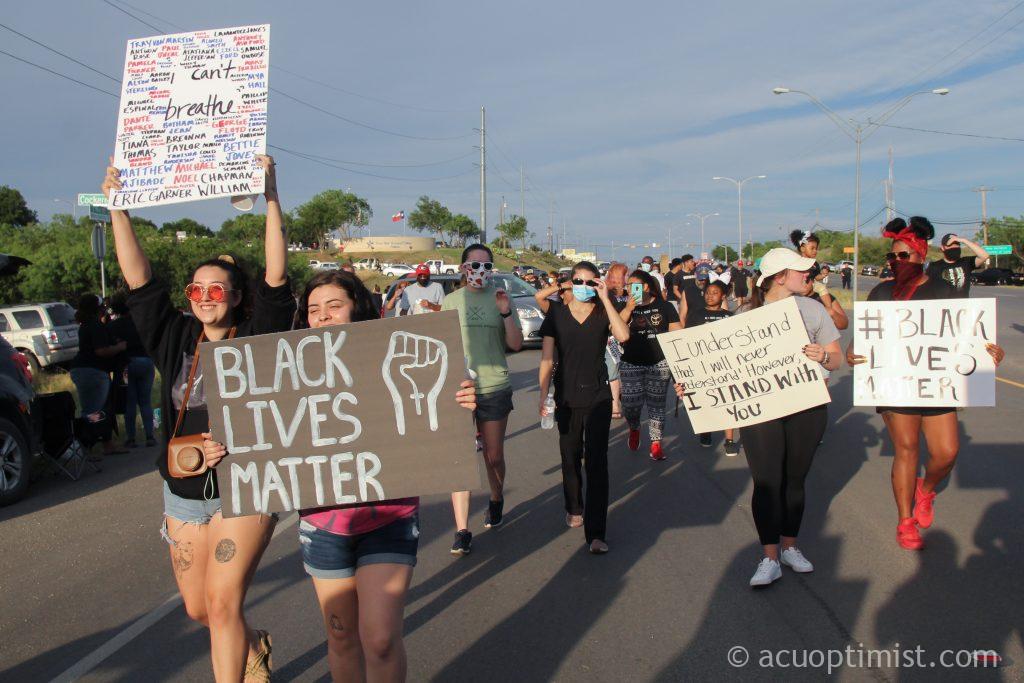Like many white Christians, I have been reading, listening and acting in response to COVID-19. I’ve also been reading, listening and acting in response to the uprisings sparked by the police killings of George Floyd, Breonna Taylor, Tony McDade and Rayshard Brooks. I have considerable privilege to choose when and where to be in solidarity with those in Abilene and elsewhere who have taken to the streets. As a sociologist who focuses on science, medicine and knowledge, and who has published scholarship on social movements and racial justice, this is a great time to think, learn and grow together.
As a scholar and teacher, my role includes creating new knowledge and bringing the best insights from the scholarly literature to our ACU community. Recent events have led me to investigate the connection between two of my research interests: the relationship between white supremacy and knowledge. I’ve been drawn to philosopher Charles W. Mills, whose 1997 book The Racial Contract discusses the epistemological consequences of white dominance in society. Mills argues that the racial contract, “prescribes… an epistemology of ignorance, a particular pattern of localized and global cognitive dysfunctions (which are psychologically and socially functional), producing the ironic outcome that whites will in general be unable to understand the world they themselves have made” (Mills 1997, p. 18). Sociologist Jennifer Mueller builds on Mills, arguing that white people often cultivate a kind of “racial ignorance”, defined as an epistemological position that seeks to deny the importance of racialized structures, despite strong empirical evidence of their enduring nature (Mueller 2017).
When white people misrepresent, misunderstand, evade and engage in self-deception on matters of racial justice, an epistemology of ignorance is at work (Mills 1997). White racial ignorance is a kind of ideological buffer, insulating white people and predominantly white institutions from connecting their own racial advantages with the system of white racial domination that oppresses Black and other racialized people.
In a video posted June 5, ACU President Phil Schubert acknowledged that his written statement on the police killings of George Floyd and Breonna Taylor, and the white vigilante lynching of Ahmaud Arbery was not strong enough. He asked for grace and affirmed ACU’s solidarity with Black Americans who are grieving these precious lives stolen. All of this was welcome, necessary and critically important.
Schubert’s video recognized the problem in failing to clearly state that Black lives matter and offered an account of this absence. President Schubert confessed that he had been afraid to use the phrase “Black lives matter” because, “I wasn’t sure what it really meant.”
At first, I was surprised. How can a man who leads an institution with thousands of students, many of whom are people of color, international, first-generation, and low income, be unaware of the meaning of what is likely the central phrase of the Black freedom struggle today? How could he avoid knowledge of the term, when it was first used in in 2013 in a Facebook post by a leading Black feminist activist, and eventually sparked a worldwide movement for Black lives?
The concept of racial ignorance is crucial in understanding why. A sociological analysis of both statements reveals once again that when it comes to matters of white supremacy and racial justice, too many white Americans, and many white Christians, have not done the important work of reading, listening and addressing this issue. Ignorance is not an epistemic trump card, excusing white people from being responsible for their own growth and development of antiracist practice.
Racial ignorance has social sources, its roots planted deep in our nation. We know that racial segregation in everyday life is common. Ignorance is fostered when white Christians and most white people live within segregated neighborhoods, segregated workplaces and segregated schools. White people save time and effort by remaining intentionally under-educated about the lives of Black, brown, and indigenous people in the United States and beyond.
Since white culture is dominant, it is understood to be normal, and becomes naturalized for white people. Our economic hierarchy, our residential segregation, our school segregation and our spiritual segregation have all fostered white racial ignorance. Black Americans and other people of color in the U.S. do not have the luxury of racial ignorance. Black, Latinx, Asian, and indigenous people know white culture well. It’s omnipresent.
I want to be clear. I am not calling out President Schubert as an individual. I am calling all white Christians into the struggle, to join Schubert and others in solidarity with the grieving, with the oppressed, with the marginalized. I am calling white Christians like myself to live Micah 6:8, which tells us what the Lord requires: to do justice, love mercy, and walk humbly with God. We should all say, and truly mean, that Black lives matter.
Dr. Dan Morrison is assistant professor of sociology at ACU.

